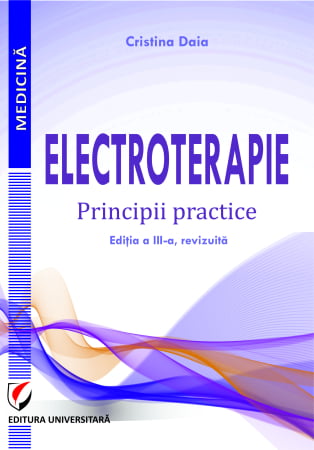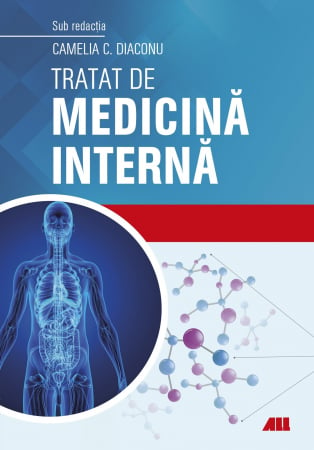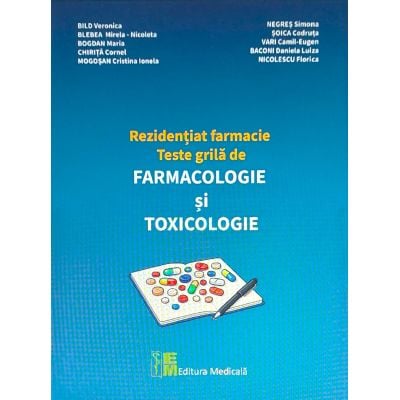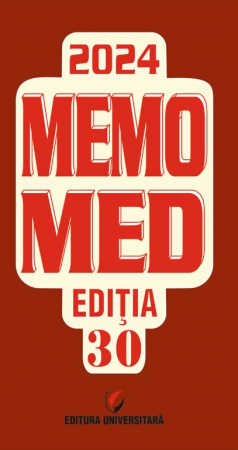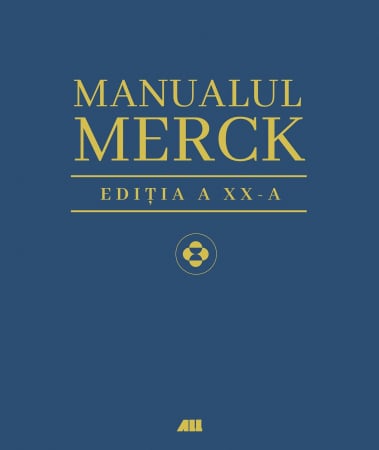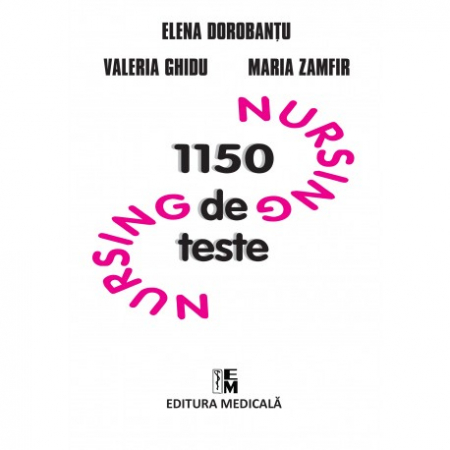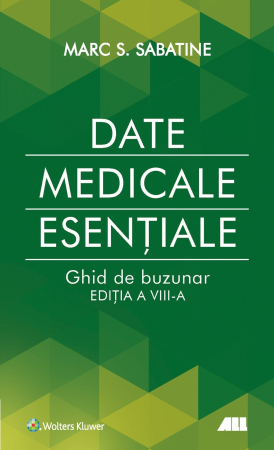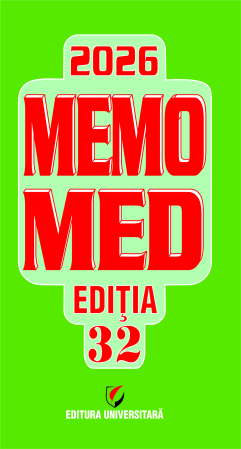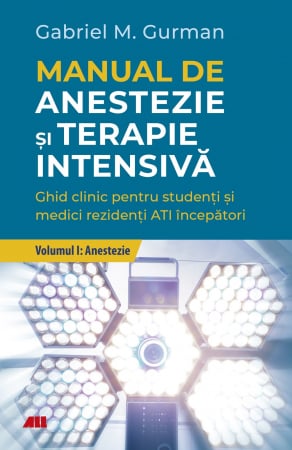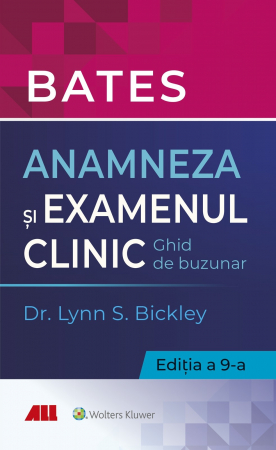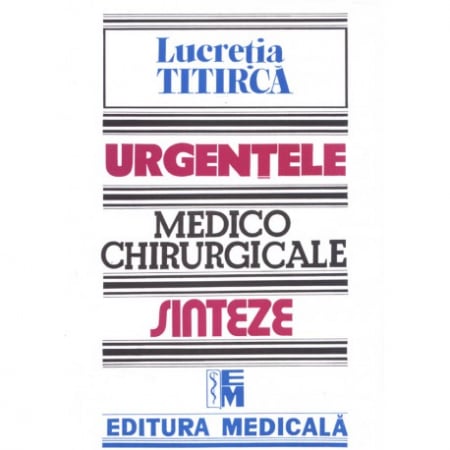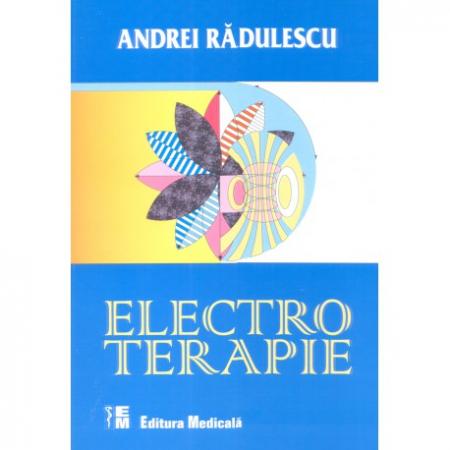ISBN: 978-606-591-226-7
Publisher year: 2011
Edition: I
Pages: 340
Publisher: Editura Universitară
Author: Alexandru Vladimir Ciurea, Vasile G. Ciubotaru
- Description
- Download (1)
- Authors
- Content
- More details
- Reviews (0)
The specialized literature on health management shows us the way we have to go from an organizational point of view. We often hear that in countries with a developed economy, the medical-sanitary units benefit from a very good organization, they have a management made up of managers who actually help to carry out the activities properly.
This book has the virtue of discussing a series of topics of current interest for the management of services, management, medical staff. The team of editors, already established, managed again to launch an exciting summary and to co-opt for the work of thinking and writing authors with medical and administrative experience from all over the country. The authors show that although currently, the medical units are economically vulnerable, they are attacked in the media, although they face problems, they are still permanently active, they are mobilized to support with services the health of the population both in emergency conditions as well as calm. The members of the medical-sanitary teams are ready to debate the problems and to find solutions to them. In addition, they are receptive to new problems and creative solutions ... And all this to the advantage of the client's or patient's life.
From reading the texts chosen in the volume we remember the following directions of management in the medical-sanitary units:
- from an organizational point of view, new perspectives are sought for the modernization of structures, services, the interventions being elaborated on the basis of realistic data, on the basis of evidence obtained from a thorough, relevant, pertinent diagnosis. European standards, ethical principles in relation to the procedures, to the collegial relations or to the relations between the medical staff and the patient, including his family, are taken into account. It tends to analyze personnel policies, knowing that in our country there were critical moments, we witnessed the overcrowding of certain areas or units with doctors, then we witnessed discussions about unemployment among doctors, so that later we wake up without doctors and without nurses, many of them going abroad. This proves the quality of the Romanian medical staff, but also the inability of our system to efficiently manage the human resources in which a lot has been invested in training.
- from a managerial point of view, the medical-sanitary units can reanalyze the management activities, the profile of competencies and behavior of the managers or leaders in order to accept or propose ways to improve the management / managerial skills. The actions of self-education, self-development, but also the specialized trainings are taken into account. There are no perfect leaders, but there are very good leaders who know how to adapt their leadership style to situations, depending on the particularities of the subordinate or collaborating staff. In the medical-sanitary units a leader must have many qualities, capacities to face the demands and, especially, to ensure the fulfillment in the best conditions of the objectives. The complexity of the management activity results from the huge responsibility for the patient's life and well-being, from the dynamic, sometimes surprising character of the events, from the acute need to form and maintain the teams at a high level of responsiveness and efficiency.
- from a human point of view, in the medical-sanitary units the idea of the importance given to the employed staff is re-launched, the one that puts into operation the procedures, technology, services. After a presentation of the categories of medical staff, but also auxiliary or other specialties, we are reminded of the development directions of human resources management in health that aim to modernize the processes of: recruitment and selection, integration and training, evaluation and motivation, all subordinated performance management. The authors pay attention to the management of the teams, this time treated from a cognitivist, transactional point of view, with reference to the management of creativity, performance, but also the climate of the work group. It is shown that the medical staff may experience moments of tension, but the effects are not only negative, but also positive if the members of the organization know how to use the controversial debates in the evolution of the unit.
The book ends with two more elaborate chapters from a psychological point of view. Occupational risk in emergency services can result in mental disorders, such as post-traumatic stress disorder, for which the necessary remedies are proposed. It is shown that in the medical-sanitary units the psychologist can contribute significantly both in the research activities and clinical therapy, as well as in the area of work analysis, organization, elaboration of methodologies useful for organizational management and human resources.
Publishers and authors have succeeded to make a new contribution to the health management literature and deserve congratulations for their initiative and effort!
Prof. Dr. Alexandru Constantinovici
-
Management in Medical Units
Download
"Bagdasar-Arseni".
VASILE GH. CIUBOTARU is a primary neurosurgeon, doctor of medical sciences. He is the Head of the III Neurosurgery Clinic at the Emergency Clinical Hospital "Bagdasar-Arseni". He has been Treasurer of the Romanian Society of Neurosurgery since 1990. He is the author of numerous awards (in Romania) in the field of neurosurgery. His academic work includes books and studies in neurosurgery and health management.
EUGEN AVRAM is a university lecturer, doctor in psychology, holder in the Department of Psychology of the University of Bucharest, specialist psychologist at the Emergency Clinical Hospital "Bagdasar-Arseni". He has training in organizational psychology, health management and cognitive-behavioral psychotherapy. He is the author or coordinator of several volumes of organizational psychology, health management, health psychology, personality psychology, neuropsychology.
Introductory word / 7
PART I
MANAGEMENT OF THE MEDICAL-SANITARY SYSTEM AND UNITS
Lelia Voinea
INTRODUCTION TO THE HEALTH SERVICES AREA / 13
Constanta Mihaescu-Pintia
EVALUATION OF HEALTH SERVICES AND PROGRAMS / 36
Adrian Marinescu
INTERNATIONAL CERTIFICATION AND MAIN ELEMENTS OF SOME HEALTH INSURANCE SYSTEMS IN EUROPE / 62
Lucian Eva
HEALTH SYSTEM DIAGNOSIS - FUNDAMENTALS OF REFORMS / 88
Alexandru V. Ciurea
ETHICAL DEBATES IN ROMANIAN MEDICINE / 103
Horia Ples
FINANCIAL EFFICIENCY IN THE HEALTH SYSTEM / 121
Part II
LEADERSHIP ACTIVITY
Vasile G. Ciubotaru
MANAGEMENT AND MANAGEMENT OF MEDICAL-SANITARY UNITS / 145
Valentin Dinu
PERSONALITY OF MANAGERS: OCTAHEDRIC MODEL / 158
Dumitru Mohan & Aurel G. Mohan
LEADERSHIP AND EFFECTIVENESS / 185
Ioana Stoica
TYPOLOGY OF SUCCESS LEADERS / 200
Horia Ples
DEVELOPMENT OF MANAGEMENT SKILLS / 209
Dan A. Nica, Lucian Eva
MANAGERS AND COACHING / 222
PART III
HOUMAN RESOURCES
Aurel G. Mohan & Dumitru Mohan
HUMAN RESOURCES DEVELOPMENT IN MEDICAL-SANITARY UNITS / 241
Valentin T. Grigorean & Mihai Popescu
PERSONNEL STRATEGIES IN HEALTH SYSTEMS / 258
Alexandru Tascu
WORKING GROUPS - MODERN APPROACHES / 275
Cornel Mihalache
CONFLICT MANAGEMENT AT THE WORKPLACE / 293
Andreia Lupascu
POST-TRAUMATIC STRESS DISORDER IN EMERGENCY SERVICES / 311
Eugen Avram
THE ROLE OF THE ORGANIZATIONAL PSYCHOLOGIST IN THE MEDICAL-HEALTH UNITS / 328
The editorial publication includes the contributions of several authors appreciated in practice and medical and psychological literature. Each analyzes a series of current realities and proposes some remedies with an impact on the health system, in the medical-sanitary units. Management data are combined in a beneficial way with those of public health, medicine, psychology, providing additional relevance to studies.
Part I deals with issues related to system management, services, ethics, risky phenomena in health activities and relations, international certification and the main elements of European health insurance systems, health system diagnosis, human resources policies.
in part II the authors consider the interesting issues of leadership and managerial development, being treated a series of topics regarding managerial functions, types of managers, personality and effectiveness of managers, leadership theory, qualities of leaders of excellence .
Part III is dedicated to human resources. Staff categories, modern working group approaches, conflict management, post-traumatic stress in emergency services, the role of work / organizational psychologist in organizational management and medical staff are reviewed.
The paper completes our editorial approaches from the past years and keeps the reader's attention on the system, institutional and departmental level management. We mention the titles already released:
- Management of health systems and organizations (2010, Editors: A.V. Ciurea, Cary L. Cooper, Eugen Avram, “Carol Davila” University Publishing House, Bucharest),
- Management of the hospital department (2010, coord .: A.V. Ciurea, V. Gh. Ciubotaru, E. Avram, University Publishing House, Bucharest),
- Modern Management in Health Organizations. Perspectives in Neurosurgery Services (2009, authors: A.V. Ciurea, V.G. Ciubotaru, E. Avram, Medical Publishing House, Bucharest),
- Development of management in health organizations. Excellence in neurosurgery services (2007, authors: A.V. Ciurea, V. Gh. Ciubotaru, E. Avram, University Publishing House, Bucharest).
Prof. Dr. Msc. A. V. Ciurea

6359.png)
![Management in Medical Units [1] Management in Medical Units [1]](https://gomagcdn.ro/domains/editurauniversitara.ro/files/product/large/management-n-unitile-medico-sanitare-1914-687236.jpg)
